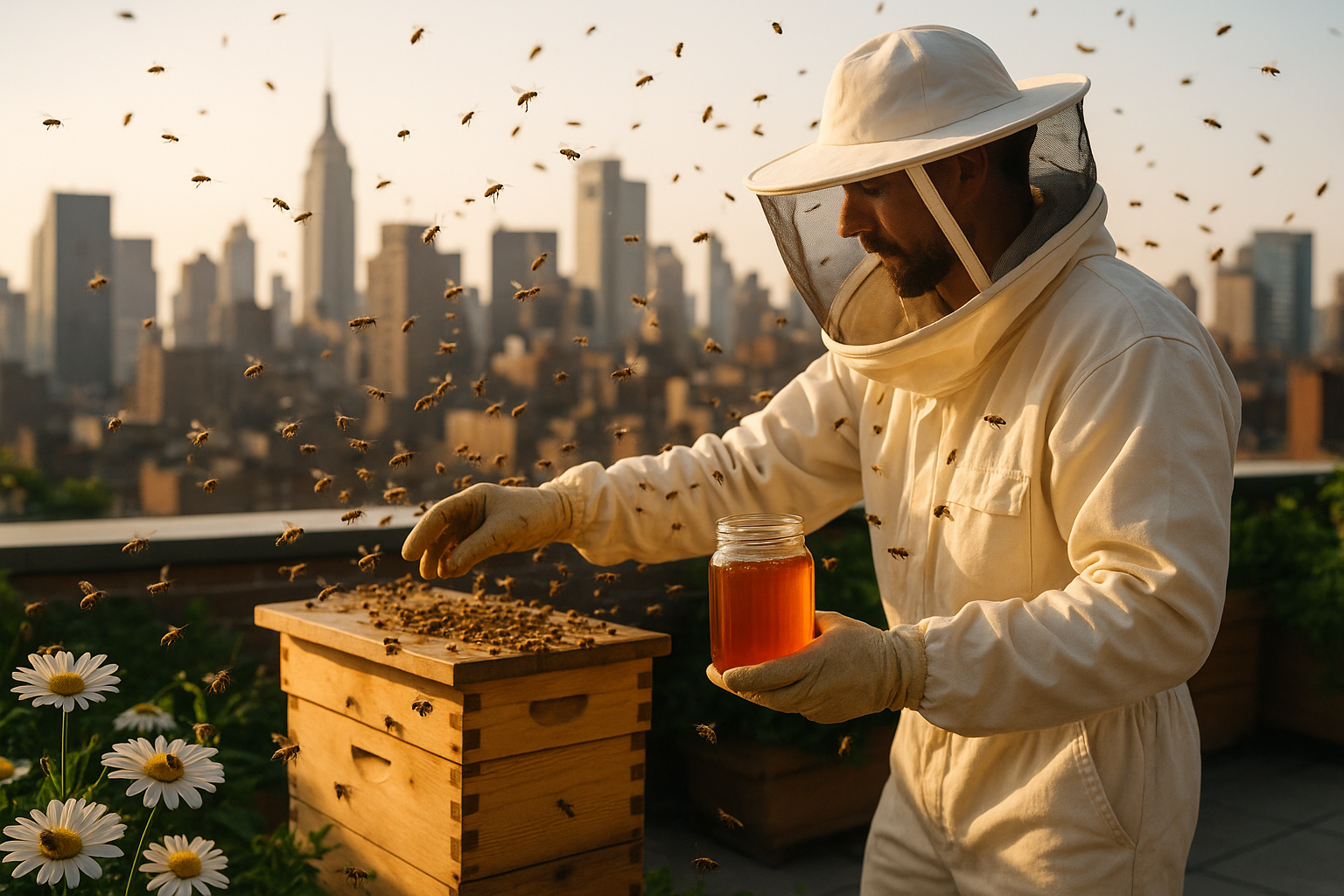The Benefits and Challenges of Urban Beekeeping
For those of us who live in the bustling city, the thought of keeping bees may seem outlandish. Yet, an increasing number of city dwellers are embracing urban beekeeping. This practice helps boost local pollination, provides a unique hobby, and even contributes to the global fight against bee population decline. However, urban beekeeping is not without its challenges.

An Unconventional City Hobby
Urban beekeeping, or apiculture in the city, is a practice that has seen a significant rise in popularity in the last decade. Its roots can be traced back to Paris in the mid-19th century, where people started keeping bees on rooftops and balconies as a response to the Industrial Revolution’s environmental effects. Today, many cities worldwide, like London, New York, and Melbourne, have a thriving community of urban beekeepers.
Honeybees in the Concrete Jungle
One might wonder how bees navigate the concrete jungle. However, city life offers some surprising advantages to our buzzing friends. Unlike rural areas where large monoculture farms dominate, cities provide a diverse range of flowering plants, offering bees a varied diet. Moreover, the absence of agricultural pesticides in urban areas benefits bee health.
The Sweet Rewards of Urban Beekeeping
Urban beekeeping has numerous benefits. For one, honey made in the city has a unique flavor profile, reflecting the varied flora available. Additionally, the practice plays a crucial role in local pollination, increasing the productivity of city gardens. Importantly, urban beekeeping also aids in the global effort to combat the alarming decline in bee populations.
Navigating the Challenges
Despite its advantages, urban beekeeping isn’t without difficulties. Managing potential conflicts with neighbors who may not appreciate a swarm of bees nearby is crucial. Additionally, ensuring the bees have enough forage throughout the year can be challenging in the changing urban landscape. There’s also a need for constant monitoring for diseases, as a sick colony could pose risks to other local hives.
The Market Buzz
Urban beekeeping has also spurred a niche market for city-made honey and bee-related products. Prices for urban honey can range from $10 to $20 per pound, reflecting its unique quality and the labor-intensive nature of urban beekeeping. While it’s unlikely to compete with commercial honey production, it contributes to urban sustainability and biodiversity.
Urban beekeeping offers a unique blend of hobby, sustainability initiative, and entrepreneurial opportunity. Despite the challenges, the satisfaction of producing one’s honey while contributing to local biodiversity and global conservation efforts makes this unconventional city hobby a sweet endeavor.






